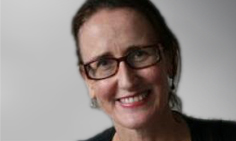RECENTLY, I wrote about the ethical challenges posed by prospective parents shopping for an egg or sperm donor on the basis of the genetic traits they had to offer.
But that concept seems tame in comparison with “in-vitro eugenics”, a term coined by Australian philosopher Dr Robert Sparrow in a feature article published in the Journal of Medical Ethics earlier this year.
In-vitro eugenics holds the potential for researchers in the future to create functional human gametes from stem cells to breed multiple generations of embryos in the lab, without the need to bring any of these embryos to term.
Such techniques could allow production of two to three human generations in a single year, or 20‒30 generations over a 10-year research program. That’s the equivalent of as many as 700 years of conventional human reproduction crammed into 10, with the added “bonus” that these embryos would be deliberately bred for particular genetic traits.
When you consider the variety of dog species we humans have managed to derive from the original genotype of the wolf through far less sophisticated breeding programs, it’s dizzying to think of the new humans it might be possible to create from a few dozen generations of genetic manipulation.
So, is this the stuff of science fiction?
Sparrow thinks not. In his article he argued that we need to be thinking about the ethical implications of such technology now.
Live mice have already been produced from sperm and oocytes created from embryonic stem cells, and experts believe this will eventually be possible in humans, he writes.
The technology could be used to study the progress of genetic diseases over multiple generations in the laboratory if the prohibitions on creation of human embryos for research were lifted, which Sparrow believes they will be.
“More controversially, [the process] might also function as a powerful technology of ‘human enhancement’ by allowing researchers to use all the techniques of selective breeding to produce individuals with a desired genotype”, he writes.
Although he notes that any babies produced by these means would be “orphaned at conception”, Sparrow suggests the ethical concerns associated with such an endeavour might not be insurmountable. It might be better, he argues, to be born without genetic parents, as these babies would be, than to know your genetic parents had abandoned you.
But does the fact that some children in the world today are abandoned by their parents really have any bearing on this ethical conundrum?
Belgian bioethicist Dr Heidi Mertes believes Sparrow underestimates the potential impact of deliberately breeding children who have no biological parents (or grandparents, or great-great-great- … grandparents).
We simply can’t know how such children would feel about their unusual origins, she writes in response to Sparrow, and any such development would seem to fly in the face of recent recognition of the rights of adopted and donor-conceived children to access information about their genetic parents.
One of the most troubling lines in Sparrow’s paper is a sub-heading: “Breeding better babies”. Although we might generally agree that producing babies without certain diseases could in principle be a good thing, who is to decide what is “better” when it comes to human beings?
Certain regimes might favour a genotype that predisposed children to dictator worship, obedience and a love of elaborate pageantry. They might also have the capacity to enforce implantation of selected embryos into host mothers for the good of the nation.
And would the world really be a better place if we were bred to have higher IQs, or would we risk sidelining other important human qualities as a result?
Fortunately, I suspect the popular appeal of in-vitro eugenics will be limited.
As Mertes writes, “the desire for genetic parenthood is deeply rooted in the human condition”.
We may want “better” babies, but we also want them to be ours.
Jane McCredie is a Sydney-based science and medicine writer.

 more_vert
more_vert
I hope in endeavouring these technologies we do not fall into Oedipus’s Tyranny or even worse.
Consider the case of Desmond Hatchett who, before the age of thirty, fathered twenty-one children with eleven different women. Fate of next generation unknown. Or the case of Nadya Suleman, unemployed used in vitro fertilization to add eight more babies to join her other six young children at home.
We need to think more deeply indeed.
The real challenge today for us and to meet our childrens’ expectations is to become better and more meaningful parents in a naturally bred and supportive and understanding cohesive family unit environment. Thank you for bringing your sensitive and endearing plea/word to this readership.
Someone once said that if we don’t learn from the mistakes of the past, we will repeat them. I thought Herr Hitler’s foray into producing the “Master Race” would’ve been warning enough not to meddle in this way.